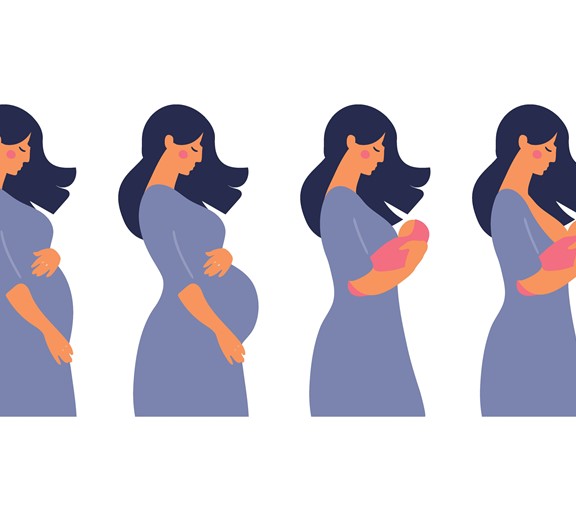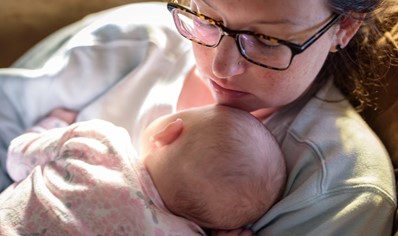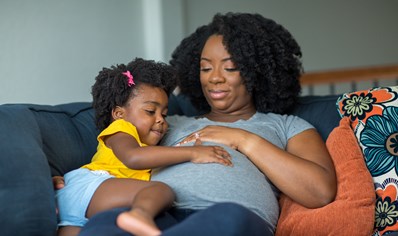
Do you want to get pregnant? Or do you want to avoid getting pregnant?
Either way, it’s important to learn as much as you can about how your body works. This is also good information to share with your daughters.
Ready to learn? Take a few minutes to read through these quick facts about pregnancy.
Remember, these are just guidelines based on what most girls and women experience. Every body is different, so be sure to ask your doctor if you have questions.
What happens when a baby is conceived?
First, your body must release an egg. Eggs are located in a woman’s ovaries. There is one ovary on each side of the uterus.
After the egg leaves the ovary, it moves to the fallopian tube. This is called “ovulation.”
The next step is a sperm cell connecting with the egg, most often in the fallopian tube. This is called “fertilization.”
Sperm usually enter the woman’s body during intercourse. They can enter the woman’s body during other types of sexual activity as well.
Can I get pregnant if I never had my period?
Yes, girls can get pregnant before they get their first period.
A monthly period is also called a “menstrual cycle.” Many girls get their first period around age 12. Other girls start their menstrual cycles before or after age 12.
Most of the time, if an egg is released from the ovary, and it does not get fertilized, a menstrual cycle will follow several days later. During this menstrual cycle or period, the bloody lining of the uterus moves down and out of the body.
If a sperm and egg meet at just the right time before a girl’s first menstrual cycle, she can become pregnant.
What happens after fertilization?
When the fertilized egg moves out of the fallopian tube, it enters the uterus. If it attaches to the wall of the uterus, that is known as implantation.
The fertilized egg grows in the uterus. First it develops into an embryo and then into a fetus. Most pregnancies last from 38 to 42 weeks.
How often does a girl or woman ovulate?
Each female body is different, so these numbers are just averages.
Every 28 days or so, the ovary releases one egg. When the egg moves into the fallopian tube, it stays in the tube for about 24 hours.
If sperm does not fertilize the egg during these 24 hours, the egg will disintegrate.
About 11-16 days later, the lining of the uterus will move out of the body, and the girl or woman will experience this as “getting her period.”
How do I know when I am ovulating?
Ovulation is different for everyone and it can change from cycle to cycle — especially when you are a teenager and your body is still developing.
You can estimate your ovulation date by using a fertility tracker.
When does fertilization happen?
An egg stays in the fallopian tube, available to be fertilized, for about 24 hours.
However, sperm can live inside the body for up to five days.
You can have sex before you ovulate and still become pregnant. For example, sperm that entered your body on Saturday could fertilize an egg released on Wednesday.
When does implantation happen?
Most eggs are fertilized by sperm while still in the fallopian tube. The fertilized egg then travels down the fallopian tube into the uterus. This can take 1-2 days.
Many fertilized eggs do not implant in the uterus wall. Instead, these eggs leave the body with the next period.
Is there a time in the month when I 100% cannot get pregnant?
No, but there are certain times when pregnancy is less likely to happen.
How can I avoid becoming pregnant?
If you do not want to become pregnant, use birth control, also called “contraception.” There are many kinds of birth control. Ask your doctor which one is best for you.
Do you need no-cost birth control?
Do you need no-cost birth control pills, diaphragms, condoms, or other family planning services?
If you live in Texas, here are two options to consider.
You might be able to get birth control through:
- Parkland HEALTHfirst, a health plan for people on STAR Medicaid
- The Healthy Texas Women program
If you are a Parkland Community Health Plan member, you can get family planning services:
- from your primary care provider
- from any family planning provider in our provider directory
- by calling Parkland HEALTHfirstMember Services:
- 1-888-672-2277
Women can apply for family planning services through Healthy Texas Women if they:
- are a resident of Texas
- are 64 or younger
- do not have health insurance
- have an income that is the same as or less than 250 percent of the amount allowed for your household as stated in the Federal Poverty Guidelines
To learn more, click here to visit the Healthy Texas Women website.



